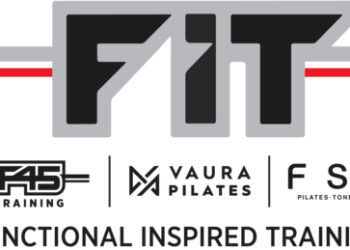Kay Yuspeh, the owner of Elite Sports Club, has cut her back office duties in half. She also no longer gets many complaints over incorrect billing. And, it’s all thanks to someone nicknamed “The Wizard.”
“The Wizard” is Kay’s son, Sam Yuspeh. With a Ph.D in electrical engineering, Sam is truly a wizard with data. According to Kay, he’s able to easily and quickly extract any information they need, whether it’s how many members picked up a tennis racquet in July, or which of their five clubs has the highest aquatic usage.
 “Before I couldn’t do that,” said Kay. “It’s made a world of difference — we don’t even use anyone for collections anymore.”
“Before I couldn’t do that,” said Kay. “It’s made a world of difference — we don’t even use anyone for collections anymore.”
Currently Sam works as a consultant for Elite Sports Clubs and other gyms, working remotely. Here, Sam shares why he likes working with data and common mistakes he’s seen when it comes to data management.
CS: Tell me a bit about yourself and your professional experience so far.
SY: Growing up in the health club industry, I have done nearly every job at one point or another. I took a break to get a Ph.D. in electrical engineering, only to realize I hated working in a lab all day. Since then, I have focused more on the business side and using data that include pricing models, projections, custom analytics and restructuring. I currently work remotely for my family’s clubs and consult on projects with other health clubs and a software provider.
CS: When it comes to data, what are some common problems you’ve seen health clubs have?
SY: Very few organizations have any systems, processes or strategy regarding their data. Most organizations have not made the changes necessary to reflect the advancements in the club industry specific software of the last 5-plus years. This results in messy databases, over reliance on financial information, accounting groups that are either too narrow or way too broad, wasted hours looking at reports and overall high labor costs.
CS: How are you able to solve those problems?
SY: It’s coming up with company-specific procedures and workflow that result in information being entered efficiently and consistently. This typically involves limiting the majority of the staff’s access in the software so they can’t do everything, but can do 99 percent of the stuff correctly 100 percent of the time. More freedom results in less consistent data and usually adds a lot more time and expense on the backend.
CS: Why do you think you’re so good at working with data?
SY: I think it’s from being able to understand both data at a fundamental level — it’s a digital representation of something that happened and what is needed to make sound business decisions. For example, instead of looking at personal training billings, I would look at what percent of new members tried personal training, and then what percent continued. By segmenting groups, you can really isolate the areas to focus on for improvement.
CS: What do you like about working with data?
SY: You can find something that seems very minor, but once understood and corrected, could have a huge impact.
CS: What do you think of your nickname, “The Wizard?” Do you think it fits?
SY: I tell everyone nothing should take more than a minute or two, and if it does, it means you’re doing something you’re not supposed to do or you’re doing it wrong. So when issues arise, instead of spending hours staring at a screen and getting frustrated, they just call, email or text the “wizard” to fix the problem. I don’t mind the name as I think it’s a sign of confidence that they always have someone that can help them.
CS: What other tips on data can you provide other health club owners/operators?
SY: There should be a reason to look at any piece of data. Reports should either be an audit or an actionable report. Reports should be a starting point in the process, not the end point. Ask yourself before you look at any report, I’m looking for “X,” and if I see “X” I’ll will do “Y.” I have met way too many operators/managers that look at reports monthly, weekly and even daily for years, and have never made a decision or done anything with the information.
Stay ahead in the fitness industry with exclusive updates!
Rachel Zabonick-Chonko is the editor-in-chief of Club Solutions Magazine. She can be reached at rachel@peakemedia.com.











